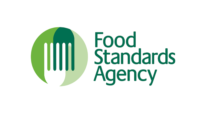Excepting Allergen Labeling Violations, UK Food Safety Mostly Unchanged in 2022 Despite Global Challenges

The UK Food Standards Agency (FSA) recently published Our Food 2022, its annual report of food standards across the nation, which was conducted in collaboration with Food Standards Scotland (FSS).
Although the UK faced significant challenges that affected the food system in 2022 like adverse weather causing harvest failures, inflation, supply chain disruptions, and labor shortages, FSA reported that that there has not been any significant change in food safety and authenticity standards, based on analyses of food incidents and foodborne illness outbreaks, data from national sampling programs, and food crime intelligence. However, FSA is concerned about ongoing violations of food composition labeling requirements with respect to allergens.
The Safety of Food Imports
FSA examined the latest available evidence from border checks and other safety notifications to examine whether the safety of imported food is being maintained. The agency also looked ahead at the impact of new free trade agreements (FTAs) on the UK food system, and how a more authoritative way of tracking and measuring imported food standards can be built.
Analysis of trade data for 2022 showed a 5.6 percent increase in the volume of food imports into the UK compared to 2021 as global markets returned to normal after the COVID-19 pandemic, approaching import level averages seen over the last decade.
Although available data on food import compliance checks carried out at the UK border is now restricted to imports from non-EU countries due to the continued absence of EU import controls, data show no significant changes in compliance failure rates in recent years. However, the UK now has responsibility for defining its own list of high-risk foods that are subject to more stringent controls, opting to increase checks on certain products in response to risks associated with pesticide use, mycotoxin contamination, and the rise in Salmonella prevalence in some parts of the world.
The UK signed FTAs with Australia and New Zealand during 2022. FSA and FSS provided advice to the UK Government that the agreements with Australia and New Zealand upheld statutory food safety protections, and for the New Zealand agreement, FSA/FSS also affirmed after an assessment that the country maintained statutory protections for nutrition.
Finally, FSA commissioned an independent consultancy, ADAS, to explore methods of measuring and collecting data relating to imported food production standards. The research demonstrated the limited data and metrics available, especially with regards to measuring and comparing UK production practices. However, the research also identified opportunities for data collection to support this research area in the future. The ADAS report will inform FSA’s ongoing work around emerging challenges.
Food Hygiene Standards
FSA also reviewed food hygiene standards across a range of food and feed businesses, examining changes in food hygiene ratings for restaurants, cafés, and other retail food establishments, as well as the level of compliance in dairy, meat, and animal feed establishments. Additionally, in the wake of the COVID-19 pandemic, FSA explored how effectively enforcement authorities have managed to restart their system of official controls and whether they have sufficient skilled resources and capacities to meet their demands.
Data from the two national food hygiene rating schemes—the Food Hygiene Information Scheme (FHIS) and the Food Hygiene Rating Scheme (FHRS)—revealed that the vast majority of food businesses had satisfactory or better hygiene standards based on inspection data as of December 31, 2022. In total, 75.7 percent of food businesses in England, Wales, and Northern Ireland achieved a top rating of five for hygiene, while only 2.9 percent of food establishments achieved a rating of 2 or below, which means the business requires improvement, major improvement, or urgent improvement. Across the entire UK, the 2022 figures show little or no change compared to 2021.
Similarly, the available data on hygiene compliance in dairy establishments showed the vast majority in England, Wales, and Northern Ireland continued to operate safely, with 98.1 percent of farms and establishments in England and Wales, and 99.1 percent in Northern Ireland, achieving satisfactory or good compliance levels. In Scotland, there was some evidence of the re-establishment of hygiene controls after the COVID-19 pandemic, with an increase in the number of inspections, guidance letters, and instances of written advice being issued in 2021–2022. No Hygiene Improvement Notices (HINs) were issued between April 2018 and March 2022.
However, analysis of workforce data over the last decade showed that the number of food safety allocated posts supported by local authorities in England, Wales, and Northern Ireland in 2022 has fallen by nearly 14 percent since 2011–2012. Resourcing issues have been compounded by challenges in filling these roles, with approximately one in seven (13.7 percent) vacant. In Scotland, the shortage is more severe, as the number of occupied food law posts fell by just over 25 percent compared to 2016–2017.
Reductions in local authority staffing also extend beyond food hygiene. FSA observed a 45.1 percent drop in the number of food standards officer allocated posts between 2011–2012 and 2021–2022 in England, Wales, and Northern Ireland. A survey published in 2020 found that trading standards officer staffing levels fell between 30 percent and 50 percent across the UK between 2008–2009 and 2018–2019. The survey also showed that just over half of the local authorities in the UK did not believe they had sufficient expertise to cover their full range of trading standards responsibilities, and that the ageing trading standards workforce was a threat to future professional capacity.
Moreover, both FSA and FSS are affected by the challenging recruitment of veterinarians who oversee inspections in meat establishments, with a reported 27.4 percent fewer people joining the profession between 2019 and 2022, a notable increase in vets leaving the UK-practicing category, and a reluctance from veterinarians graduating from UK universities to take on public health roles.
Food Safety and Authenticity
Finally, analyses were conducted of data on food safety incidents and foodborne illness outbreaks, national food sampling surveys conducted across the UK, and investigations led by FSA/FSS food crime units to tackle fraud, adulteration, and other types of criminal behavior within the food chain.
Food Safety Incidents and Violations of Regulations
The total number of reported food incidents across the UK decreased slightly in 2022 compared to 2021, but remained broadly consistent with long-term trends. Meat and meat products continued to be the food category most often associated with food incidents. The leading cause of food incidents was pathogenic microorganisms, accounting for 29 percent of all UK cases. The number of incidents relating to undeclared or incorrectly declared allergens returned to pre- pandemic levels, following a decline in cases during 2020–2021.
The rate of most foodborne illnesses also reverted to pre-pandemic levels during 2022. However, reported cases of Shiga toxin-producing Escherichia coli O157:H7 (STEC) reached their highest level since 2015, largely as a result of a major outbreak that was detected in the summer of 2022. The routine use of whole genome sequencing (WGS) was noted.
There was no overall change in the combined number of allergy alerts issued by UK food agencies in 2022 compared to 2021. A reported 25 percent increase in the number of product recall information notices (PRINs) was largely due to changes in how the figures were analyzed in 2022, rather than any increase in an overall number of notices being issued. Neither FSA nor FSS were required to issue a food alert for action (FAFA) notice—the most serious category of food incident alert—in 2022.
Additionally, FSA’s targeted survey for 2022 showed no statistical difference in the level of noncompliant results from previous years. Approximately one third of noncompliances related to labeling violations. The findings also revealed further potential public safety issues relating to allergen declarations, reinforcing the continued need for regular checks by local authorities and businesses.
Sampling of oat and oat-based products within FSS’s sampling program did not detect unsafe toxins or heavy metals. However, there were instances of undeclared allergens in the “free-from” products that were tested, and a significant proportion (18 percent) of minced beef samples either had a higher fat content or a lower meat content than was declared on the packet.
Food Crime
The UK’s two national food crime units carried out a range of investigations throughout 2022 in line with their respective strategies. In England, Wales, and Northern Ireland, the National Food Crime Unit (NFCU) has been heavily focused on tackling threats in the red meat sector, the diversion of animal by products into the food chain, and pursuing suppliers of dangerous non-foods sold for consumption. In Scotland, the Scottish Food Crime and Incident Unit’s (SFCIU) investigations under common law included a focus on suspected fraud in relation to counterfeit alcohol, as well as traceability and adulteration in the meat supply chain and illegal slaughter.
In England, Wales, and Northern Ireland, a sizeable amount of NFCU’s disruptions of criminal behavior included action against dangerous non-foods through the removal of the illegal dieting drug 2,4-Dinitrophenol (DNP) from online sale, as well as ongoing action against criminality in the red meat sector and the diversion of animal by-products into the food chain. In Scotland, a significant number of SFCIU-led disruptions centered on criminality affecting meat and meat products, as well as fraud involving Scottish grown tea, confectionary, and honey. SFCIU made a series of unannounced visits with partners to pubs and other licensed venues to check for counterfeit products and deter any future criminal behavior.
No evidence was detected by NFCU/SFCIU in food surveillance or sampling activity, or in the data made available via the Food Industry Intelligence Network (FIIN), to suggest there has been any increase in authenticity issues attributable to criminals taking advantage of issues like price inflation, pandemic effects, environmental changes, and the Ukraine conflict. However, current economic conditions may present further opportunities for criminality within the food chain.
Looking for a reprint of this article?
From high-res PDFs to custom plaques, order your copy today!






